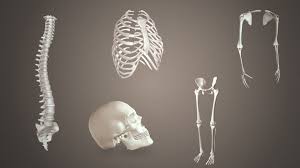Calcium Tonic
- Introduction to Calcium Tonic
- Composition of Calcium Tonic
- Uses of Calcium Tonic
- How Calcium Tonic Works
- Dosage and Administration of Calcium Tonic
- Common and Potential Side Effects of Calcium Tonic
- Warnings and Precautions
- Interactions with Other Medications
- Contraindications
- Special Considerations for Specific Populations
- Overdosage and Management
- Storage and Handling of Calcium Tonic
- Handling Precautions
Introduction to Calcium Tonic
Overview of Calcium Tonics
Calcium supplements are designed to supply calcium to the body and are typically fortified with extra nutrients to improve absorption and effectiveness—playing a role in combating calcium deficiencies and promoting overall well-being.
Importance of Calcium in the Body
Calcium plays a role in important bodily functions such as strengthening bones and teeth and helping with blood clotting and muscle contractions while also ensuring the nervous system functions properly. If the body lacks sufficient calcium, it can lead to skeletal abnormalities, weak bones, and impaired bodily processes.
Role of Calcium Tonics in Maintaining Health
Taking calcium tonics provides a method to add calcium to your diet. Particularly beneficial for those with specific needs, like kids from pregnant women and older adults. Including calcium in your diet through these tonics is essential for keeping your bones strong and preventing osteoporosis while supporting bodily functions effectively.

Composition of Calcium Tonic
Key Active Ingredients
The main component found in calcium tonics is either calcium carbonate or calcium citrate. They are selected for their ability to provide calcium that effectively boosts the levels of calcium in the blood.

Additional Vitamins and Minerals in Calcium Tonics
Several formulations contain nutrients like vitamin D to improve the absorption of calcium and magnesium and provide bone health support in tonics. Along with zinc and vitamin K 3, they are also added to enhance the effectiveness of the tonic formulation.
Uses of Calcium Tonic
Prevention and Treatment of Calcium Deficiency
Calcium supplements are a way to combat calcium deficiencies resulting from diet choices or health conditions. By taking them regularly, you can help avoid issues such as muscle cramps, weakened bones, and fatigue.
Supporting Bone Health and Preventing Osteoporosis
Role in Postmenopausal Health
Postmenopausal women experience a decrease in bone density as a result of shifts in their bodies. Consumption of calcium supplements can aid in minimizing this risk by promoting bone strength and decreasing the likelihood of fractures occurring.

Supporting Growth and Development in Children
In years of life, calcium plays a role in building strong bones and supporting growth. Taking calcium supplements can assist in meeting the needs during this period.
Management of Calcium Deficiency in Pregnancy and Lactation
Off-label Uses of Calcium Tonic
- Alleviation of Muscle Cramps: Helps reduce cramping associated with calcium deficiency.
- Support in Recovery from Fractures: Promotes faster bone healing post-injury.
- Use in Chronic Hypocalcemia: Manages long-term calcium deficiency in medical conditions.

How Calcium Tonic Works
Mechanism of Calcium Absorption in the Body
Calcium supplements provide the body with calcium that gets absorbed in the intestines with the help of vitamin D. The absorbed calcium then enters the bloodstream and supports functions.
Role in Bone Mineralization and Density Maintenance
Calcium gets stored in bones to keep them stable. Taking supplements regularly helps prevent demineralization, which occurs when essential minerals are lost from the bones.
Impact on Neuromuscular Functions
Facilitating the transmission of nerve signals and aiding muscle contractions is essential for ensuring movement and coordination in the body.
Dosage and Administration of Calcium Tonic
Recommended Dosages for Adults
Most grown-ups usually need around 1000 to 1200 milligrams of calcium every day for health maintenance purposes! Calcium tonics can be a solution to fill this calcium quota when your regular diet falls short in providing enough of it.
Dosages for Children by Age Group
- 1-3 years: 700 mg/day
- 4-8 years: 1,000 mg/day
- 9-18 years: 1,300 mg/day
Dosages During Pregnancy and Lactation
Expectant and nursing mothers should strive to consume between 1200 and 1300 milligrams of calcium, per day to meet the demands of their bodies during this time.
Instructions for Use (With or Without Food)
Taking calcium supplements with food is recommended to improve absorption rates; nevertheless, it's also acceptable to consume types, like calcium citrate, without eating anything.
Timing of Administration for Optimal Absorption
Breaking down the dose into portions throughout the day enhances absorption. Reduces the chances of experiencing stomach-related discomfort.
Common and Potential Side Effects of Calcium Tonic
List of Common Side Effects
- Nausea
- Constipation
- Bloating
Rare but Serious Side Effects
- Hypercalcemia characterized by excessive calcium levels in the blood
- Kidney stones due to prolonged high intake
Managing Side Effects
Staying hydrated by drinking lots of water and adjusting the amount of medication can reduce side effects; however, it is important to seek advice for more serious symptoms.
Warnings and Precautions
Conditions Requiring Caution in Use
In situations, it's crucial to pay close attention when using calcium tonics to prevent any potential issues from arising as it could lead to complications, some individuals with underlying health problems should consult with their healthcare provider prior to taking them for safety reasons.
Renal Impairment
Patients with kidney conditions need to be careful when taking calcium supplements as their kidneys may have difficulty getting rid of calcium, which could worsen their kidney problems.
Hypercalcemia Disorders
Health conditions, such as high calcium levels in the blood, like hyperparathyroidism, necessitate avoiding calcium supplements to prevent the situation from worsening.
Long-term Use Considerations
Using calcium supplements for a time can be helpful in some situations but may lead to the hardening of soft tissues or heart-related issues as well. It is recommended to monitor your health indicators when using these supplements for a period.
Monitoring Calcium Levels During Treatment
Regularly checking the calcium level in the blood is important to make sure that the treatment is working properly and not causing any harm due to the dosage of medication or supplements while also ensuring health and wellness through medical checkups and tests.
Interactions with Other Medications
Potential Drug Interactions
Taking calcium supplements, alongside medications could affect how well they work or their safety levels might change as a result of the interaction between them both.
Interaction with Vitamin D Supplements
Balanced supplementation is crucial as vitamin D boosts calcium absorption; however, overdoing them together could result in hypercalcemia.
Interaction with Antacids Containing Aluminum
Avoid taking antacids containing aluminum at the same time as calcium supplements, as they can interfere with each other's absorption and effectiveness; it's best to stagger their intake to prevent any interaction issues.
Reduced Efficacy of Certain Antibiotics
Taking calcium supplements alongside antibiotics, like tetracyclines and fluoroquinolones can reduce the antibiotics effectiveness as they may bind together in the stomach and intestines causing a decrease in their efficacy over time leading to reduced benefits, from the medication received.
Food Interactions and Absorption Impact
High-fiber foods or those rich in oxalates, like spinach, may interfere with calcium absorption. Consuming calcium tonics with low-fiber meals enhances their bioavailability.

Contraindications
Absolute Contraindications
It's best to steer off calcium supplements in medical situations to avoid any negative effects.
Known Allergies to Ingredients
If someone is known to have a sensitivity to any part of the calcium tonic, they should avoid using it to prevent reactions.
Severe Hypercalcemia
People with levels of calcium should avoid using calcium tonics since it can worsen their condition and result in serious health issues, like kidney damage and heart problems.

Situations Where Use Is Strongly Discouraged
In cases of hyperparathyroidism, metastatic bone disease, or sarcoidosis conditions, calcium supplements are not recommended unless specifically recommended by a healthcare provider.
Special Considerations for Specific Populations
Administration to Elderly
Adjustments for Reduced Kidney Function
Elderly individuals often experience diminished renal efficiency, necessitating lower doses or more frequent monitoring to prevent calcium accumulation and toxicity.
Administration to Pregnant Women and Nursing Mothers
Safety Profile and Benefits
Calcium tonics are generally safe during pregnancy and lactation, providing vital nutrients for fetal bone development and supporting milk production. However, dosages should align with medical recommendations.

Administration to Children
Recommended Dosages for Growth Needs
Kids need the right amount of calcium for their bones to grow strong and healthy. It's important to give them the right dose based on their age to help them grow without any side effects.
Overdosage and Management
Symptoms of Calcium Overdose
- Nausea and vomiting
- Fatigue and lethargy
- Cardiac arrhythmias
Emergency Management Protocols
In situations where an overdose is suspected, it is crucial to stop taking the calcium supplement and seek medical help. The treatment options may involve receiving fluids through an IV taking diuretics to increase urine production or using medications to reduce the levels of calcium in the bloodstream.
Storage and Handling of Calcium Tonic
Recommended Storage Conditions
Remember to keep your calcium supplements in a dry spot, from direct sunlight, to maintain their effectiveness because excessive heat and moisture can weaken their potency.
Temperature and Light Sensitivity
Some products can be affected by temperatures and sunlight exposure, so storing them in their packaging is key to preserving their quality and effectiveness.
Proper Handling Precautions
Be sure to keep the product pure by using measuring tools and sealing the container securely each time you use it.
Shelf Life and Expiry Information
Make sure to check the expiration date of items and dispose of anything that has exceeded its shelf life since it might not work effectively or could become unsafe to use.
Handling Precautions
Ensuring Proper Measurement of Liquid Formulations
To make sure you're giving the dose and administering it safely and effectively while reducing the chances of an overdose
Avoiding Contamination During Use
Remember to keep the lid of the tonic bottle closed and store it in an area to avoid any bacterial contamination.
Safe Disposal of Unused or Expired Product
Make sure to follow your waste management rules when getting rid of expired calcium tonics and avoid pouring them into water systems to protect the environment from harm.
Calcium Tonic FAQ
What is calcium tonic?
These remedies are helpful for issues such as weakness, losing weight, trouble sleeping, feeling nervous or digestive, experiencing loss of appetite, or needing support during lactation and prolonged illness.
Which calcium is the best?
Calcium supplements come in two types; carbonate and citrate. Carbonate is the affordable option and usually a popular initial pick for consumers due to its cost-effectiveness factor compared to citrate. Furthermore,other varieties of calcium found in supplements include gluconate as lactate. Moreover certain calcium supplement products are formulated with added vitamins and minerals, for enhanced benefits.
What are the main uses of calcium?
Developing bones and teeth, forming blood clots, transmitting and receiving nerve impulses, contracting and relaxing muscles well, and releasing hormones and various substances.
Can I take calcium at night?
When you take calcium before bed, it won't disturb your sleep. It might lessen the impact of magnesium intake, which is known for its calming effects and is commonly suggested for consumption.
Can I take calcium every day?
Most adults require around 1 gram of calcium to maintain health.
Who needs calcium the most?
Elderly











